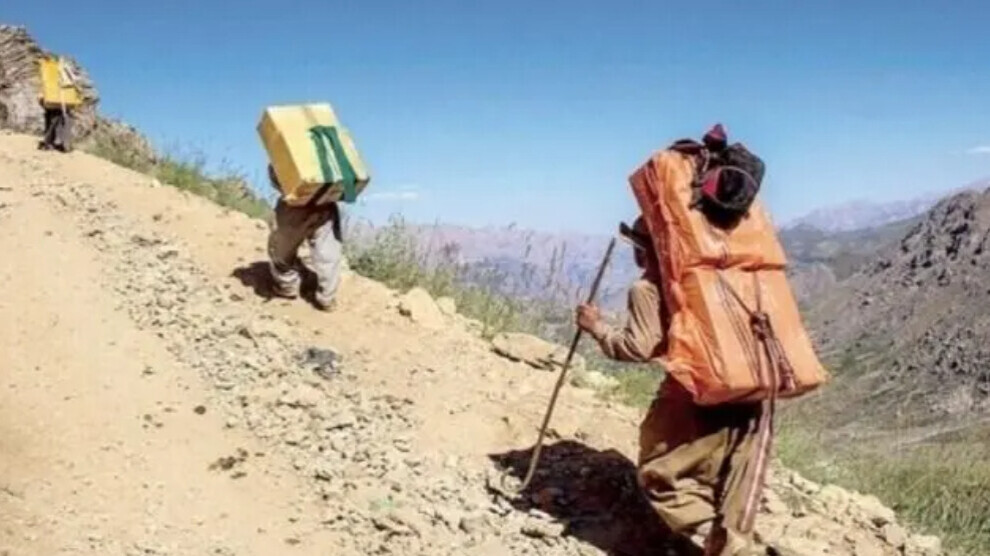Five kolbars wounded in attack by Iranian forces
Kolbars and kasibkars are targeted systematically by Iranian and Turkish security forces. Each year, dozens of them are killed with no punitive measures being taken.
Kolbars and kasibkars are targeted systematically by Iranian and Turkish security forces. Each year, dozens of them are killed with no punitive measures being taken.

Iranian border guards opened fire on a group of 15 kolbars in the border area of Saqiz city in East Kurdistan. Five of the kolbars were wounded as a result of the attack, and 10 were taken into custody, and then imprisoned.
According to reports, the wounded kolbars were tortured during their transfer to the hospital. Those with critical injuries were reportedly put into intensive care.
Kolbars and kasibkars are targeted systematically by Iranian and Turkish security forces. Each year, dozens of them are killed with no punitive measures being taken. Apart from systematic attacks, kolbars are struggling to make a living under harsh weather conditions, dangerous geographical locations and mines.
Kolber or “kolbar” is derived from the Kurdish words “kol” and “bar”. Kol means “back”, bar means “load”. Kolbars make their living by carrying goods on their backs across dangerous borders. The goods they carry include cigarettes, mobile phones, blankets, household items, tea and rarely alcoholic beverages. They have to pass through dangerous roads between South Kurdistan and East Kurdistan. The goods brought are sold at relatively high prices in commercial centres such as Tehran. However, kolbars who carry out the transportation of goods at the expense of their lives receive a very small amount of wages.
Kasibkar refers to those people who receive the goods kolbars carry to South Kurdistan and find buyers in towns.